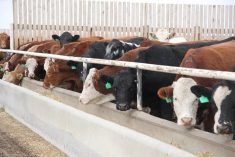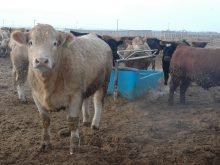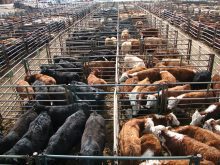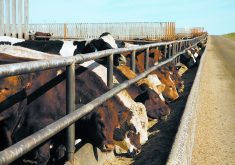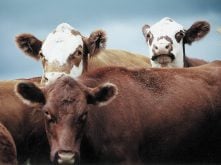This cattle market information is selected from the weekly report from Canfax, a division of the Canadian Cattlemen’s Association. More market information, analysis and statistics are available by becoming a Canfax subscriber by calling 403-275-5110 or at www.canfax.ca.
Fed market stays low
The fed market has been disappointing relative to expectations, but year-to-date western Canadian fed beef production is up eight percent and year-to-date fed prices are up two percent. This shows strong demand because more beef is being produced at higher prices.
Read Also

Organic farmers urged to make better use of trade deals
Organic growers should be singing CUSMA’s praises, according to the Canadian Chamber of Commerce.
Closing $2-$3 per hundredweight lower, this is the fourth consecutive week of lower fed prices. Fed steers averaged $150.57 per cwt. last week, down $1.97, and fed heifers averaged $149.05 per cwt., down $3.65. With the recent price pullback, feeding margins have gone from positive in early to mid-January to negative now. A lot of the cattle placed against the first quarter market have breakevens on either side of $160 per cwt. With losses approaching $150 per head, cattle feeders are starting to fight the market by delaying marketings and adding additional weight to their cattle.
This week, dressed sales were reported at $252-$260 per cwt. delivered. Cattle bought last week were being scheduled for the week of March 16 delivery. Longer than expected lift times created some selling pressure. Buying interest was noted from all three western Canadian packers.
Over the past two weeks western Canadian fed prices have been trading at a $7-$8 per cwt. discount against the Nebraska market. Sales in Ontario were trading at $251-$253 per cwt., delivered late last week. Cattle were being scheduled for one to four weeks delivery.
In the United States, dressed sales in the north were reported at mostly US$190 per cwt., which was $2-$4 per cwt. lower than the previous week. Live sales in all four major feeding states were marked at $119 per cwt., $2 per cwt. weaker. Steer carcass weights are 12 pounds larger than last year and heifer weights are 13 lb. larger.
Bulls trade higher
Slaughter cow volumes through auction moderated last week and prices were reported steady with the previous week. D2 cows averaged C$86.22 per cwt. and D3s averaged $75.90 per cwt. Butcher bulls traded $1.80 per cwt. stronger to average $103.59 per cwt., more than $7 per cwt. higher than the same week last year.
Western Canadian non-fed slaughter for the week ending Feb. 8 was up six percent over the previous week to 10,254 head and year to date was 13 percent lower at 52,983 head. Weekly cow slaughter volumes have likely peaked this week and supplies through the remainder of the third quarter are expected to tighten.
Mixed feeder trade
Alberta feeders traded mixed last week with calves less than 700 lb. fully steady to higher than the previous week and larger feeders over 700 lb. trading barely steady to $1.85 per cwt. lower. Buying interest for calves was mixed with good demand observed as grass cattle, but enthusiasm has softened to place these calves against the fourth quarter fed market at a loss.
Large feeders over 800 lb. to place against the lacklustre third quarter fed market saw prices ease around $1.50 per cwt. lower.
Alberta auction volumes were four percent larger than the previous week and 62 percent larger than the same week last year. Year-to-date auction volumes are eight percent larger than last year.
Ontario 800-900 lb. steers generally traded at a $3-$4 per cwt. premium to the west last week, and eastern buying interest across the Prairies was price supportive. The U.S. Department of Agriculture reports that Canadian feeder exports for the week ending Feb. 1 totalled 1,869 head, 59 percent lower than the same week last year. Year-to-date feeder exports were 46 percent lower at 5,307 head.
Calf prices should see grass interest improve. Ample market-ready fed supplies are anticipated for September and October.
Cutouts drop
In U.S. beef trade, cut-out values trended lower on seasonally lacklustre demand. The Choice cutout slipped $4.50 per cwt. lower than the previous week to average $206.45. Select softened more than $2 per cwt. lower to average $203.79.


